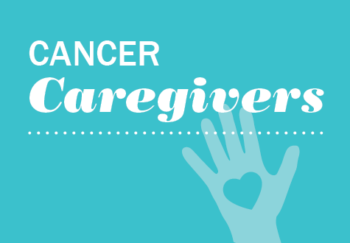A celebratory high five became a teaching moment for my son, Peyton, then 10 years old.
As we brought our hands together, he studied my crooked fingers. My hand was showing signs of muscle atrophy (wasting away). This was because of amyotrophic lateral sclerosis (ALS) – also known as Lou Gehrig’s disease. It wasn’t a secret: My husband and I had already talked to Peyton and our younger son, Carter, about my diagnosis. They were experiencing the reality of growing up with a chronically ill parent.
“Mom, are you going to die?” Peyton asked.
Breathing a quick prayer for wisdom, I tried to reassure him. “Nobody knows when they’ll die. But my illness is slow-progressing, and a lot of people are taking good care of me. You don’t need to worry.”
When Life Gets Hard
As a mom, one of my strongest instincts is to shield my sweet boys from the bad stuff in life. But kids are perceptive. They need, and deserve, honesty from their parents. Telling a child their parent has a chronic, and possibly terminal, illness is not easy. But your child will benefit from your openness.
“Kids will pick up on signs of poor physical health, stress, or worry,” says Haley Stephens, PhD, a pediatric psychologist at UVA Children’s. “And they’ll worry about it, whether you talk about it or not. It's better to reassure your child and help them know what to expect than to leave their mind wondering about what's happening.”
How Can Parental Illness Affect a Child?
ALS is a neurological disease that causes cells of the central nervous system to stop working or die. That leads to a decline in balance, movement, talking, breathing, swallowing, and other functions.
Living with a neurological disease doesn’t just take a toll on the patient. These illnesses impact the entire family, especially children. Besides ALS, these are conditions such as Alzheimer’s or Parkinson’s disease, multiple sclerosis (MS), Huntington’s disease, and more.
My boys have seen me fall many times. Over the past decade or so, they’ve seen me progress from using a cane, to a walker, and sometimes a mobility scooter. They know I take frequent trips to UVA Health for care by neurologists who are experts in ALS. They understand that my condition most likely will progress to the point that I’ll need to use a wheelchair.
Each new phase of decline can be scary and upsetting for kids growing up with a chronically ill parent.
Navigating Parenthood with a Neurological Illness?
UVA Health offers a variety of support services and connections to support through other organizations.
Not Sure How to Tell a Child About a Parent's Chronic Illness?
Are you a parent who’s facing an illness that won’t get better? Here are 7 expert-backed tips to start the conversation about growing up with a chronically ill parent.
Set the Stage
Timing is everything. Choose a time when everyone’s well-rested. Eliminate distractions. Decide ahead:
- Where the conversation will take place
- What you’ll say
- Who’s going to be there
“This should not be a spontaneous conversation,” Stephens says.
Keep It Simple
Tailor the conversation to your child’s age and maturity level. You should:
- Share information in small doses
- Use words they understand
- Name and describe your illness
- Explain how it will affect their lives
“Talk to your kids about the illness, no matter what their age,” Stephens says. “But the language you use will look different when you're talking to a 2-year-old versus a 6-year-old versus a 16-year-old.”
Be Honest
It’s okay to say you’re sad, afraid, or angry. Don’t burden your children with complicated emotions. Let them know whatever they’re feeling is normal. Take time for cuddles and hugs.
Let Them Talk
Encourage your child to express their feelings. Give them a chance to ask questions. Invite them to talk to you any time.
Reassure Them
Let your child know you have good doctors taking care of you. For younger children, it’s also important to tell them they didn’t cause your illness. Kids of all ages need to know that they are loved and will be cared for, no matter what happens.
Stay Positive
Sure, you’re delivering bad news. You’re telling your child about an illness you’re likely to die from. But it’s important for your child to know this isn’t the end of the world. There’s always hope for treatments, and you can tell them that scientists are working hard to find a cure. Since my ALS diagnosis, our family’s core message has been, “We’ll get through this together.”
Keep Open Lines of Communication
Update your children after each doctor’s appointment. Alert them ahead of time if you’re going to start using new assistive equipment, such as a wheelchair or respiratory support. Encourage them to ask questions and to share their feelings.
Remind Yourself of Their Resilience
My younger son, Carter, was 3 years old when my symptoms of ALS started. He’s now 16. During a recent conversation with him, I realized how far he’s come in his ability to express his feelings about my illness and empathy for me.
“Mom, I know you won’t live a long life, but I don’t want you to be scared,” he said. “I want you to be happy.”
With every new phase of a caregiver’s neurological illness, most children — like mine — will adapt to changes in the family’s daily routine.
“Children are amazingly resilient,” Stephens says. “They do a pretty good job of sinking into their new normal during challenging periods of a parent’s illness. They find ways to keep living in healthy, happy ways.”


